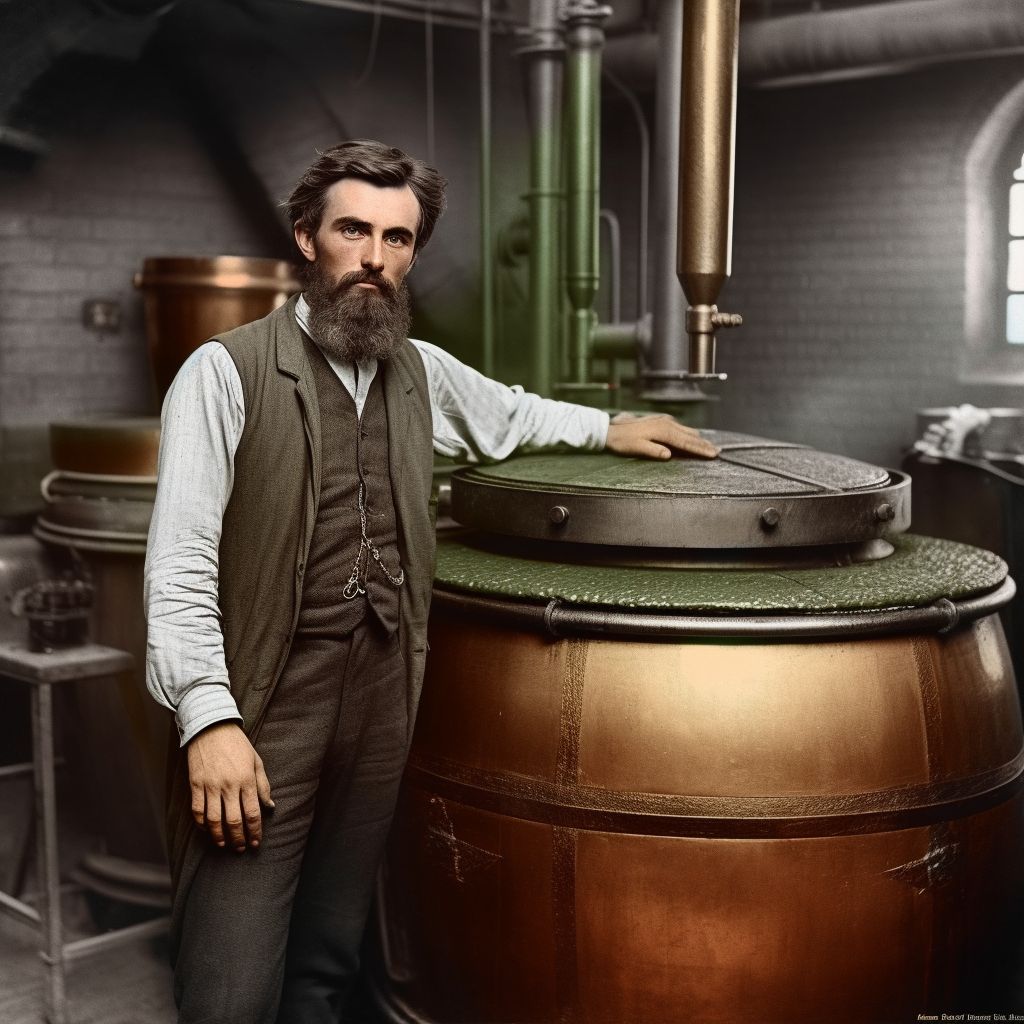Brewer
The brewing profession in the United States during the 19th century played a significant role in the development of the country's economy and society. By 1880, brewers had become an essential part of the rapidly growing beer industry, driven by a surge in population growth, immigration, and changing consumer tastes. This article delves into the brewing profession in the United States in 1880, exploring its history, the brewing process, and the impact of brewers on American society.
History of Brewing in the United States
The history of brewing in the United States dates back to the colonial period when English settlers brought their beer-making traditions to the New World. Over time, the brewing profession evolved as new techniques and ingredients were introduced, particularly from German immigrants who started arriving in the mid-19th century.
By 1880, the brewing industry in the United States had grown considerably, with numerous breweries operating across the country. The increasing demand for beer, fueled by a growing population and the influx of European immigrants, led to a boom in the profession.
The Brewing Process
Brewers in 1880 were skilled artisans who followed traditional methods and processes to produce beer. The basic ingredients included water, malted barley, hops, and yeast. The brewing process began with the mashing of malted barley, which was mixed with water to create a mash. The mash was then heated to extract fermentable sugars, resulting in a liquid called wort.
The wort was boiled with hops, which added bitterness and aroma to the beer. After boiling, the wort was cooled and transferred to fermentation vessels, where yeast was added to initiate the fermentation process. The yeast converted the fermentable sugars into alcohol and carbon dioxide, transforming the wort into beer.
Following fermentation, the beer was conditioned, filtered, and packaged for consumption. Brewers carefully monitored each step of the process to ensure a consistent and high-quality product.
Impact on American Society
The brewing profession had a profound impact on American society in 1880. Breweries provided jobs for thousands of workers, including brewers, laborers, and other skilled tradespeople. The industry also stimulated economic growth by creating demand for raw materials, such as barley, hops, and other agricultural products.
Brewers were often influential members of their communities, contributing to the local economy and supporting charitable causes. Many breweries became important social gathering places, fostering a sense of camaraderie and community among patrons.
In 1880, the brewing profession also contributed to the development of American culture, as beer became a popular beverage consumed by people from various backgrounds. Brewers often adapted their recipes to cater to regional tastes, resulting in a diverse range of beer styles and flavors.
Conclusion
The brewing profession in the United States in 1880 was an essential component of the country's burgeoning beer industry. Brewers were skilled artisans who followed traditional methods to produce a wide range of beer styles that catered to the diverse tastes of the American population. The profession had a significant impact on the economy and society, providing employment opportunities, stimulating economic growth, and contributing to the cultural fabric of the nation.
Type
Artisan

